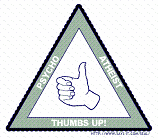For School Board Candidates: Will This Be on the Test?
While we’re all focused on this year’s Congressional elections, let’s not forget that other positions—equally important—are up for grabs. Men and women all over the country are vying to become members of school boards. Whichever political team they’re on, though, their campaign literature is usually filled with nothing but safe blather. They want a superior education for our young people. Better pay and more respect for teachers. Improved testing that yields usable benchmarks. Comfortable and effective facilities. Adequate, modern supplies. Blah, blah, blah. The candidates may change a few words in the formula, but they’ll cover these points over and over and over, as if someone else running might be suggesting otherwise.
However, there are some really pressing questions that most candidates avoid. For one thing, there’s the critical issue of whether or not the game of tag should be allowed during recess. According to the media, the future of Western Civilization may hang on the answer to that one.
While the candidates scramble not to be "it," here are some other questions we ought to chase them with:
1. Do you support using the Bible as a science text? Which sciences would you use it for? Give examples of as many scientific breakthroughs as you can think of that were brought about through a close reading of the Old or New Testament.
2. Could a high school student’s future be endangered by reading a thought-provoking book that contains a few dirty words? If so, how? Including only those books that you have read yourself and been damaged by, list any books you would ban from the school library. For each book listed, explain specifically the kind of harm it caused you. Feel free to use any words that help you express yourself.
3. Can you reconcile the words “... under god ...” in the pledge of allegiance with the beliefs of every single child in every single classroom in your school district? Do you know the beliefs of every single child in every single classroom in your school district? List each child by full name, and describe in detail his or her beliefs. What evidence can you present to the children that god is interested in liberty and justice for all?
4. Do you think that people elected to ensure a quality public education should advocate giving tax-payer dollars to private religious schools? Really? Without quoting any Supreme Court justices, Republican politicians, or religious leaders, explain how you square your view with (a) the First Amendment and (b) the meanings of “public” and “private.”
5. In your opinion, which is more important in a child’s education: thinking or praying? As a school board member, which would you do more often?




